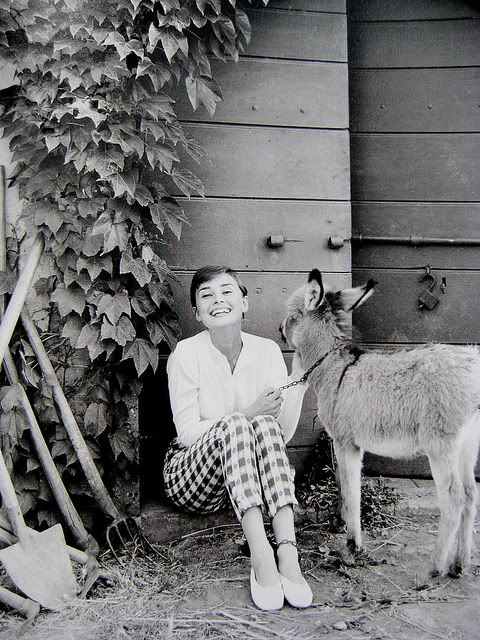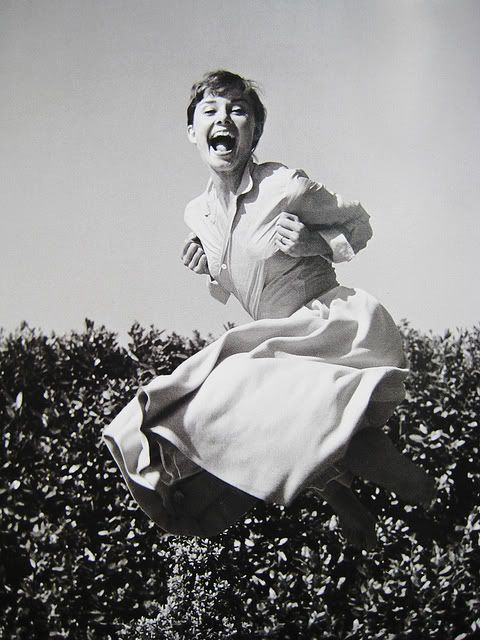Excerpted from Wendell Berry's "Discipline and Hope."
The principle was stated by Thoreau in his journal: “Hard and steady and engrossing labor with the hands, especially out of doors, is invaluable to the literary man and serves him directly. Here I have been for six days surveying in the woods, and yet when I get home at evening, somewhat weary at last… I find myself more susceptible than usual to the finest influences, as music and poetry.” That is, certainly, the testimony of an exceptional man, a man of the rarest genius, and it will be asked if such work could produce such satisfaction in an ordinary man. My answer is that we do not have to look far or long for evidence that all the fundamental tasks for feeding and clothing and housing—farming, gardening, cooking, spinning, weaving, sewing, shoemaking, carpentry, cabinetwork, stonemasonry—were once done with consummate skill by ordinary people, and as that skill indisputably involved a high measure of pride, it can confidently be said to have produced a high measure of satisfaction.
We are being saved from work, then, for what? The answer can only be that we are being saved from work that is meaningful and ennobling and comely in order to be put to work that is unmeaning and degrading and ugly.
In 1930, the Twelve Southerners of I’ll Take My Stand issued an introduction to their book “A State of Principles,” in which they declared for the agrarian way of life as opposed to the industrial. The book, I believe, was never very popular. At the time, and during the three decades that followed, it might have been almost routinely dismissed by the dominant cultural factions as an act of sentimental allegiance to a lost cause. But now it has begun to be possible to say that the cause for which the Twelve Southerners spoke in their introduction was not a lost but a threatened cause: the cause of human culture. “The regular act of applied science,” they said, “is to introduce into labor a labor-saving device or a machine. Whether this is a benefit depends on how far it is advisable to save labor. The philosophy of applied science is generally quite sure that the saving of labor is a pure gain, and that the more of it the better. This is to assume that labor is an evil, that only the end of labor or the material product is good. On this assumption, labor becomes mercenary and servile… The act of labor as one of the happy functions of human life has been in effect abandoned… Turning to consumption as the grand end which justifies the evil of modern labor, we find that we have been deceived. We have more time in which to consume, and many more products to be consumed. But the tempo of our labors communicates itself to our satisfactions, and these also become brutal and hurried. The constitution of the natural man probably does not permit him to shorten his labor-time and enlarge his consuming-time indefinitely. He has to pay the penalty in satiety and aimlessness.”
The outcry in the face of such obvious truths is always that if they were implemented they would ruin the economy. The peculiarity of our condition would appear to be that the implementation of any truth would ruin the economy. If the Golden Rule were generally observed among us, the economy would not last a week. We have made our false economy a false god, and it has made blasphemy of the truth. So I have met the economy in the road, and am expected to yield it right of way. But I will not get over. My reason is that I am a man, and have a better right to the ground than the economy. The economy is no god for me, for I have had too close a look at its wheels. I have seen it at work in the strip mines and coal camps of Kentucky, and I know that it has no moral limits. It has emptied the country of the independent and the proud, and has crowded the cities with the dependent and the abject. It has always sacrificed the small to the large, the personal to the impersonal, the good to the cheap… I see it teaching my students to give themselves a price before they can give themselves a value.
… A better economy, to my way of thinking, would be on that would place its emphasis not upon the quantity of notions and luxuries but upon the quality of necessities. Such an economy would, for example, produce an automobile that would last as least as long, and be at least as easy to maintain, as a horse. It would encourage workmanship to be as durable as its materials; thus a piece of furniture would have the durability not of glue but of wood. It would substitute for the pleasure of frivolity a pleasure in the high quality of essential work…
… The change I am talking about appeals to me precisely because it need not wait upon “other people.” Anybody who wants to do it can begin it in himself and in his household as soon as he is ready—by becoming answerable to at least some of his own needs, by acquiring skills and tools, by learning what his real needs are, by refusing the glamorous and the frivolous. When a person learns to act on his best hopes he enfranchises and validates them as no government or public policy ever will. And by his action the possibility that other people will do the same is made a likelihood.
But I must concede that there is also a sense in which I am tilting at windmills. While we have been preoccupied by various ideological menaces, we have been invaded and nearly overrun by windmills. They are drawing the nourishment from our soil and the lifeblood out of our veins. Let us tilt against the windmills. Though we have not conquered them, if we do not keep going at them they will surely conquer us.
More about this essay later.
Showing posts with label quotes. Show all posts
Showing posts with label quotes. Show all posts
Friday, September 2, 2011
Saturday, August 27, 2011
The mind that is not baffled is not employed.
There are, it seems, two muses: the Muse of Inspiration, who gives us inarticulate visions and desires, and the Muse of Realization, who returns again and again to say "It is yet more difficult than you thought." This is the muse of form. It may be then that form serves us best when it works as an obstruction, to baffle us and deflect our intended course. It may be that when we no longer know what to do, we have come to our real work and when we no longer know which way to go, we have begun our real journey. The mind that is not baffled is not employed. The impeded stream is the one that sings.
WENDELL BERRY.
WENDELL BERRY.
Saturday, August 13, 2011
listen:there's a hell
of a good universe next door;let's go
e e cummings
Sunday, August 7, 2011
Whenever I find myself growing grim about the mouth;
whenever it is a damp, drizzly November in my soul; whenever I find myself involuntarily pausing before coffin warehouses, and bringing up the rear of every funeral I meet; and especially whenever my hypos get such an upper hand of me, that it requires a strong moral principle to prevent me from deliberately stepping into the street, and methodically knocking people's hats off--then, I account it high time to get to the sea as soon as I can.
Finished Moby-Dick; Or, The Whale, and am now too wound up from the chase to sleep.
I'll confess Chapter 32, Cetology, charmed me the most.
Friday, August 5, 2011
Not drives or appetites but simple attention, awareness, if only I could stay awake off speed.
I'm not the smartest person, but even during that whole pathetic, directionless period, I think that deep down I knew that there was more to my life and to myself than just the ordinary psychological impulses for pleasure and vanity that I let drive me. That there were depths to me that were not bullshit or childish but profound, and were not abstract but actually much realer than my clothes or my self image, and that blazed in an almost sacred way — I'm being serious; I'm not just trying to make it sound more dramatic than it was — and that these realest, most profound parts of me involved not drives or appetites but simple attention, awareness, if only I could stay awake off speed.
David Foster Wallace in The Pale King
David Foster Wallace in The Pale King
Wednesday, July 27, 2011
That azure sea I dreamed about on maps in the sixth grade, surrounded by the pink, yellow, green and caramel countries.
On the train: staring hypnotized at the blackness outside the window, feeling the incomparable rhythmic language of the wheels, clacking out nursery rhymes, summing up moments of the mind like the chant of a broken record: god is dead, god is dead. going, going, going.
. . .
Hours leap or delay on the luminous dial of Sassoon’s watch. Between dozing and waking to stare out into the night, straining to see, to evoke the colors locked into the all-comprehensive blackness, France runs past. Secret, hidden, giving only the moon, rocky hills now, with clotted patches of whiteness, perhaps snow, probably not. Then, lifting my head sleepily once, suddenly the moon shining incredibly on water. Marseille. The Mediterranean. At last, unbelievable, the moon on that sea, that azure sea I dreamed about on maps in the sixth grade, surrounded by the pink, yellow, green and caramel countries, the pyramids and the Sphinx, the holy land, the classic white ruins of the Greeks, the bleeding bulls of Spain, and the stylized pairs of boys and girls in native costume, holding hands, splendid in embroidered silks.
The Mediterranean. Sleep again, and at last the pink light of dawn along the back of the hills in a strange country. Red earth, orange tiled villas in yellow and peach and aqua, and the blast, the blue blast of the sea on the right. The Cote d’Azur. A new country, a new year: spiked with green explosions of palms, cacti sprouting vegetable octopuses with spiky tentacles, and the red sun rising like the eye of God out of a screaming blue sea.
SYLVIA PLATH.
. . .
Hours leap or delay on the luminous dial of Sassoon’s watch. Between dozing and waking to stare out into the night, straining to see, to evoke the colors locked into the all-comprehensive blackness, France runs past. Secret, hidden, giving only the moon, rocky hills now, with clotted patches of whiteness, perhaps snow, probably not. Then, lifting my head sleepily once, suddenly the moon shining incredibly on water. Marseille. The Mediterranean. At last, unbelievable, the moon on that sea, that azure sea I dreamed about on maps in the sixth grade, surrounded by the pink, yellow, green and caramel countries, the pyramids and the Sphinx, the holy land, the classic white ruins of the Greeks, the bleeding bulls of Spain, and the stylized pairs of boys and girls in native costume, holding hands, splendid in embroidered silks.
The Mediterranean. Sleep again, and at last the pink light of dawn along the back of the hills in a strange country. Red earth, orange tiled villas in yellow and peach and aqua, and the blast, the blue blast of the sea on the right. The Cote d’Azur. A new country, a new year: spiked with green explosions of palms, cacti sprouting vegetable octopuses with spiky tentacles, and the red sun rising like the eye of God out of a screaming blue sea.
SYLVIA PLATH.
Tuesday, July 26, 2011
You get to decide what to worship.
Because here's something else that's weird but true: in the day-to day trenches of adult life, there is actually no such thing as atheism. There is no such thing as not worshipping. Everybody worships. The only choice we get is what to worship. And the compelling reason for maybe choosing some sort of god or spiritual-type thing to worship -- be it JC or Allah, bet it YHWH or the Wiccan Mother Goddess, or the Four Noble Truths, or some inviolable set of ethical principles -- is that pretty much anything else you worship will eat you alive. If you worship money and things, if they are where you tap real meaning in life, then you will never have enough, never feel you have enough. It's the truth. Worship your body and beauty and sexual allure and you will always feel ugly. And when time and age start showing, you will die a million deaths before they finally grieve you. On one level, we all know this stuff already. It's been codified as myths, proverbs, clichés, epigrams, parables; the skeleton of every great story. The whole trick is keeping the truth up front in daily consciousness.
DAVID FOSTER WALLACE.
Sunday, July 24, 2011
It will rise and find the surface: and why not?
The brain may take advice, but not the heart, and love, having no geography, knows no boundaries: weight and sink it deep, no matter, it will rise and find the surface: and why not? Any love is natural and beautiful that lies within a person's nature; only hypocrites would hold a man responsible for what he loves, emotional illiterates and those of righteous envy, who, in their agitated concern, mistake so frequently the arrow pointing to heaven for the one that leads to hell.
TRUMAN CAPOTE.
TRUMAN CAPOTE.
Saturday, July 9, 2011
To live now as we think human beings should live, in defiance of all that is bad around us, is itself a marvelous victory.
To be hopeful in bad times is not just foolishly romantic. It is based on the fact that human history is a history not only of cruelty, but also of compassion, sacrifice, courage, kindness. What we choose to emphasize in this complex history will determine our lives. If we see only the worst, it destroys our capacity to do something. If we remember those times and places — and there are so many — where people have behaved magnificently, this gives us the energy to act, and at least the possibility of sending this spinning top of a world in a different direction. And if we do act, in however small a way, we don’t have to wait for some grand utopian future. The future is an infinite succession of presents, and to live now as we think human beings should live, in defiance of all that is bad around us, is itself a marvelous victory.
HOWARD ZINN.
Tuesday, June 21, 2011
That one should wake up in the morning, it was enough.
Every season is likeable, and wet days and fine, red wine and white, company and solitude. Even sleep, that deplorable curtailment of the joy of life, can be full of dreams.
VIRGINIA WOOLF.
VIRGINIA WOOLF.
Monday, May 9, 2011
Bread lines of the spirit.
The public library is indeed an institution that has not kept up with the times. But given what has happened to our times, why do you see that as unhealthy? In an age of greed and selfishness, the public library stands as an enduring monument to the values of cooperation and sharing. In an age where global corporations stride the earth, the public library remains firmly rooted in the local community. In an age of widespread cynicism and distrust of government, the 100 percent tax supported public library has virtually unanimous and enthusiastic support.
... Libraries are much more than bookstores. About 30 percent of the people who visit libraries do not borrow books. For a greater number of people than we might care to believe, the library serves as a warm and dry sanctuary, a place they can sit without fear of being bothered. For others, it is a refuge from loneliness, a place full of hustle and bustle, where they can attend a concert, or hear a lecture or read a magazine free of charge.
...
All things public are under attack. The Fort Worth [library] rebranding [to remove the word ‘public’] is an indication of how effective this attack has been. The city explained that it was dropping the word "public" because of its "potentially negative connotation." The Founding Fathers would be disconsolate. John Adams wrote in 1776, "There must be a positive passion for the public good, the public interest… established in the minds of the people, or there can be no republican government, nor any real liberty: and this public passion must be superior to all private passions." Thomas Jefferson agreed, "I profess… that to be false pride which postpones the public good to any private or personal considerations."
All Hail the Public Library!
... Libraries are much more than bookstores. About 30 percent of the people who visit libraries do not borrow books. For a greater number of people than we might care to believe, the library serves as a warm and dry sanctuary, a place they can sit without fear of being bothered. For others, it is a refuge from loneliness, a place full of hustle and bustle, where they can attend a concert, or hear a lecture or read a magazine free of charge.
...
All things public are under attack. The Fort Worth [library] rebranding [to remove the word ‘public’] is an indication of how effective this attack has been. The city explained that it was dropping the word "public" because of its "potentially negative connotation." The Founding Fathers would be disconsolate. John Adams wrote in 1776, "There must be a positive passion for the public good, the public interest… established in the minds of the people, or there can be no republican government, nor any real liberty: and this public passion must be superior to all private passions." Thomas Jefferson agreed, "I profess… that to be false pride which postpones the public good to any private or personal considerations."
All Hail the Public Library!
Friday, May 6, 2011
Then realized it's good for my soul not to know.
Success, instead of giving freedom of choice, becomes a way of life. There's no country I've been to where people, when you come into a room and sit down with them, so often ask you, "What do you do?" And, being American, many's the time I've almost asked that question, then realized it's good for my soul not to know. For a while! Just to let the evening wear on and see what I think of this person without knowing what he does and how successful he is, or what a failure. We're ranking everybody every minute of the day.
ARTHUR MILLER.
Funny that the very evening after I read this, I met a Moroccan man and we stood and talked under an astounding sky (menacing clouds with ragged edges backed by a saffron and magenta sunset) and I pointedly didn't ask him what he did. He volunteered this information after awhile, and then laughed and said that it reminded him of being in Morocoo or Europe not being asked upfront what he does and where.
ARTHUR MILLER.
Funny that the very evening after I read this, I met a Moroccan man and we stood and talked under an astounding sky (menacing clouds with ragged edges backed by a saffron and magenta sunset) and I pointedly didn't ask him what he did. He volunteered this information after awhile, and then laughed and said that it reminded him of being in Morocoo or Europe not being asked upfront what he does and where.
Wednesday, April 27, 2011
Revisiting Joan Didion.
The impulse to write things down is a peculiarly compulsive one, inexplicable to those who do not share it, useful only accidentally, only secondarily, in the way that any compulsion tries to justify itself. I suppose that it begins or does not begin in the cradle. Although I have felt compelled to write things down since I was five years old, I doubt that my daughter ever will, for she is a singularly blessed and accepting child, delighted with life exactly as life presents itself to her, unafraid to go to sleep and unafraid to wake up. Keepers of private notebooks are a different breed altogether, lonely and resistant rearrangers of things, anxious malcontents, children afflicted apparently at birth with some presentiment of loss.
JOAN DIDION.
JOAN DIDION.
Friday, April 15, 2011
Having had, and lost, some infinite thing.
Figure out how to keep from going through your comfortable, prosperous, respectable adult life dead, unconscious, a slave to your head and to your natural default setting of being uniquely, completely, imperially alone, day in and day out... with the constant gnawing sense of having had, and lost, some infinite thing.
DAVID FOSTER WALLACE.
Why, in fact, should economists be the only ones empowered to define what a society's wealth is? It is certainly useful to know what a society produces, but it's a bit stunted: GDP tells us nothing about our social health, no more than it informs us about the attacks on the environment and the explosion of inequality. With so many blind spots, it will become difficult to avoid catastrophe. (From And if we were to change ...everything.)
Monday, April 4, 2011
Martin Luther King, Jr.
"Be concerned about your brother... either we go up together, or we go down together."
Saturday, March 19, 2011
Jane Eyre.
I shall be called discontented. I could not help it: the restlessness was in my nature; it agitated me to pain sometimes.
JANE EYRE. CHARLOTTE BRONTE.
Saturday, February 5, 2011
This becomes more obviously true every day.
When we try to pick out anything by itself, we find it hitched to everything else in the universe.
JOHN MUIR.
JOHN MUIR.
Saturday, January 29, 2011
I felt dumb and subdued. Every time I tried to concentrate, my mind glided off, like a skater, into a large empty space, and pirouetted there, absently.
Subscribe to:
Posts (Atom)




